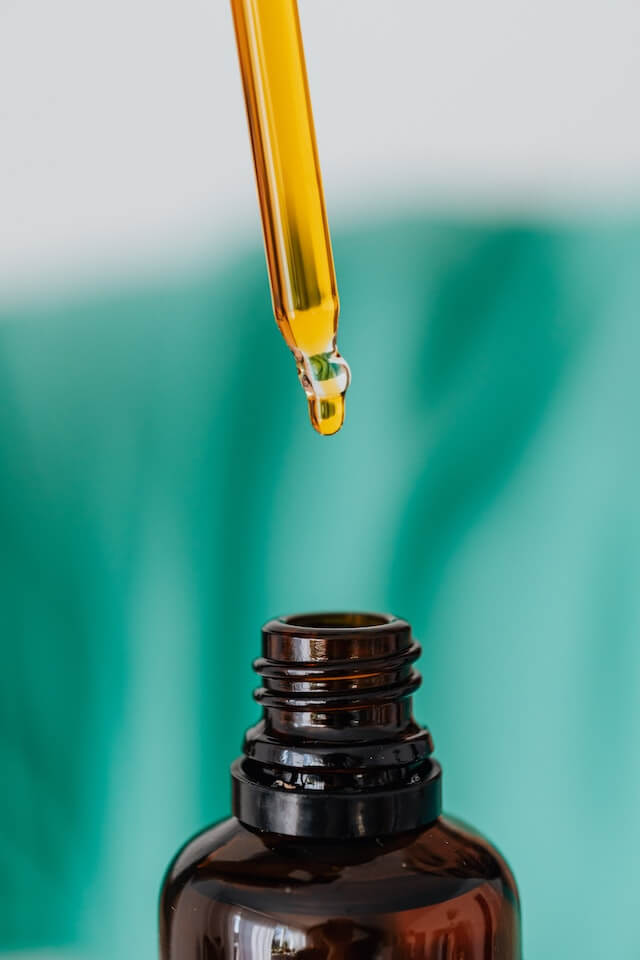A vasectomy is a surgical procedure that is performed on the vas deferens, the tubes that carry sperm from the testicles to the ejaculatory ducts. It is a common form of birth control for men, and it is generally considered to be a safe and effective procedure. However, some men have reported experiencing premature ejaculation after undergoing a vasectomy.
In this blog, the team at ShagLonger will explore the possible link between vasectomy and premature ejaculation and provide some information about treatment options for men who are experiencing this issue.
Does vasectomy affect premature ejaculation or even sexual performance?
Now, vasectomies are a pretty common procedure for men looking to take control of their reproductive future (or lack thereof). It’s a simple surgery that cuts and seals the vas deferens, the tubes that carry sperm from the testicles to the ejaculatory ducts (so bye-bye having babies).
But here’s the thing: some guys have reported experiencing premature ejaculation after getting the procedure. And let’s be real, no one wants to cum too soon. So, the question is: is there a real link between vasectomies and premature ejaculation? And if so, what can be done about it?
Well, the truth is that there is NO clear evidence to suggest that vasectomy directly causes premature ejaculation or just about any other sexual performance issues.
It’s important to note that premature ejaculation can have a variety of causes, including psychological factors, hormonal imbalances, and underlying medical conditions. If you’re experiencing premature ejaculation and think it may be related to a vasectomy, it’s important to speak with a healthcare provider to determine the underlying cause and explore treatment options. We’ll dive into some of the other causes here.
Causes of premature ejaculation
There are several potential causes of PE. For instance, acquired premature ejaculation develops after a period of normal sexual functioning and inherited traits.
In this section, we will explore the psychological, biological, medical, and medication-related causes of this common issue.
Psychological factors (e.g., anxiety, stress, depression)
Okay, let’s talk about the psychological causes of premature ejaculation. These can include anxiety, stress, and depression. Now, anxiety about sexual performance is a big one. It could be that you’re worried about not being able to give your partner sexual satisfaction, or maybe you’re just worried about what they’ll think of you.
Either way, this anxiety can lead to premature ejaculation. Stress is another factor. We all deal with stress in our lives, but when it comes to sex, it can really mess with your ability to relax and focus. Finally, there’s depression. It can affect your desire for sex and make it harder to get an erection or ejaculate. It’s worth noting that these psychological factors can be interconnected and can make each other worse.
For example, anxiety can lead to stress, which can then cause depression. The good news is that treatment for premature ejaculation often involves addressing these underlying psychological issues. This could mean therapy, medication, or a combination of both.
Biological factors (e.g. genetics, hormones, nerve damage)
Premature ejaculation is a common sexual dysfunction that can be caused by a variety of biological factors.
Genetics
Some research suggests that there may be a genetic component to PE, as the condition tends to run in families. This means that if a man has a close relative (such as a father or brother) with PE, he may be more likely to experience the condition himself.
There are several potential causes of PE (and even erectile dysfunction), including irregular hormone levels, irregular levels of brain chemicals, infection of the prostate or urethra, and inherited traits.
Hormones
Hormonal imbalances can also play a role in the development of PE. For example, low levels of testosterone or high levels of prolactin (a hormone that is involved in the production of milk) have been associated with PE.
Sensitive Nerves
A sensitive penis can be a contributing factor to premature ejaculation, as it can make it more difficult for a man to control his ejaculation. The sensitivity of the penis is determined by the amount of nerve endings it has, and a penis with more nerve endings may be more sensitive to stimulation.
Medical conditions (e.g. prostate problems, thyroid issues)
Certain medical conditions can contribute to premature ejaculation (PE). For example, problems with the prostate gland or imbalances in thyroid hormones can lead to PE and affect sexual function. Additionally, conditions such as diabetes, high blood pressure, heart disease, and mental health issues like anxiety or depression have been linked to PE. However, it’s important to remember that PE can be caused by various factors and that treatment should be personalized to each individual.
It’s important to note that PE can be caused by a combination of factors, and treatment should be tailored to the individual. If you’re concerned about your early ejaculation, it’s a good idea to speak with a healthcare professional who can help you identify the underlying causes and determine the best course of treatment.
Diagnosing premature ejaculation
It is important to note that PE can have both physical and psychological causes, and the specific cause can vary from person to person. It is important to talk to a doctor for a premature ejaculation evaluation and to determine the most appropriate treatment for your individual needs.
When you go see a healthcare provider to get premature ejaculation diagnosed, they’ll probably ask you about your medical history, including any medications you’re taking and any underlying health conditions you might have. They’ll also want to know about your sexual history, like how long you’ve been dealing with PE and how often it happens.
Your healthcare provider might also do some physical exams and laboratory tests to rule out any underlying medical conditions that could be causing your PE. For example, they might order some blood tests to check for hormonal imbalances or other factors that could be contributing to your PE.
The bottom line is, talking to a healthcare provider about your PE is important because it’ll help make sure you get the right evaluation and treatment for your individual situation.
How To Treat Premature Ejaculation (& Delay Ejaculation!)
There are several treatment options available for PE, including behavioral techniques, medications, alternative therapies, and surgery. Here is a brief overview of each of these treatment options.
Exercises
First, there are behavioral techniques like the “start and stop method” and the “squeeze” method. The “stop-start” method involves starting sexual activity, getting yourself aroused, then stopping right before you’re about to ejaculate and waiting until the urge passes. You can repeat this process a few times before eventually allowing yourself to ejaculate. The squeeze method involves gently squeezing the head of your penis slightly for a few seconds before ejaculating, which can help reduce the urge to ejaculate.
Kegel exercises are a type of exercise that can help to strengthen the muscles of the pelvic floor. These muscles, which support the bladder and bowel, can also play a role in sexual stamina and can be strengthened through kegel exercises.
There is some evidence to suggest that kegel exercises may help manage premature ejaculation. By strengthening the muscles of the pelvic floor, a man may be able to improve his control over ejaculation and last longer during sexual activity.
Medication
Next, there are medications like selective serotonin reuptake inhibitors (SSRIs) and topical anesthetics. SSRIs are a type of antidepressant that can help treat PE by inhibiting the reuptake of serotonin, a neurotransmitter involved in sexual function. Topical anesthetic creams like lidocaine or prilocaine can also be applied to the penis to reduce sensation and delay ejaculation.
You can even go to a specialized clinic for the treatment of PE.
Natural supplements
If you don’t like the thought of taking prescribed medication from a doctor, there are plenty of natural male enhancement supplements available. This can minimize the risk of any bad side effects you might receive from medications.
Although there are plenty of these products available on the market, not all of them are created equally. That’s why our team of experts has reviewed many products to come up with the most effective and natural solution available.
Therapy
Seeing a sex therapist or mental health professional can help solve the underlying problems to treat premature ejaculation i..e, performance anxiety, relationship issues, etc. Behavioral therapy and relationship therapy may also help cure any underlying problem for why you have trouble maintaining a satisfactory time in the sheets.
Even alternative therapies like acupuncture and herbal remedies are sometimes used to treat PE, although the evidence for their effectiveness is limited.
Surgery
In rare cases, if you experience premature ejaculation, surgery may be an option. This can help increase the time to ejaculation by reducing sensitivity in the penis.
But remember, surgery is usually only recommended for cases of PE that don’t respond to other treatment options. So don’t panic, there are plenty of options out there to help you prevent premature ejaculation and last longer in bed.












